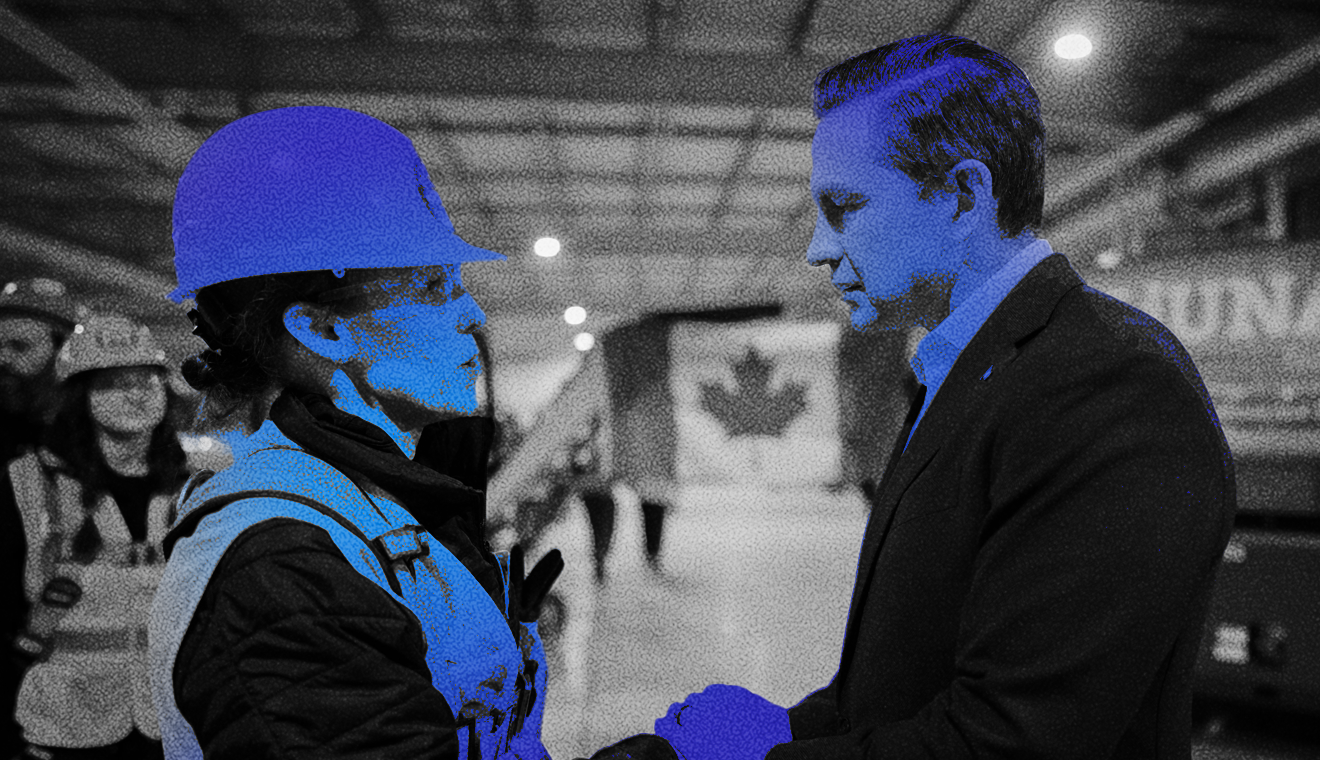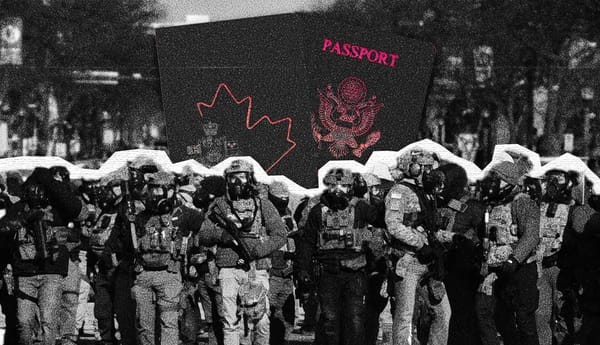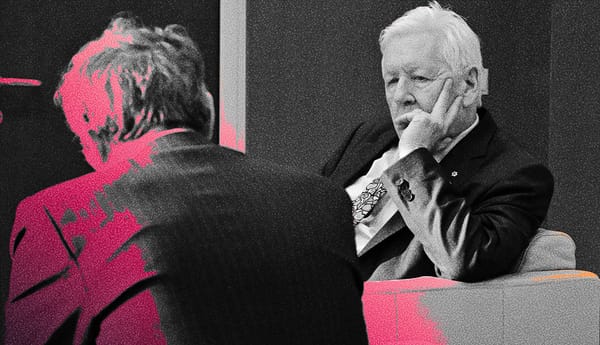In key regions where Pierre Poilievre’s Conservatives made gains in last month’s election, voters face higher-than-average increases in housing costs, a growing homelessness crisis and the threat of tariff-induced mass unemployment.
Voters in Kitchener and Windsor, Ont. chose change, even if that meant booting out beloved incumbent MPs, including one who had represented his community for 23 years.
While U.S. President Donald Trump’s threats against Canada were a highly ranked issue during the election, dealing with rising costs of living was more important to many Canadians, according to polls. The results on election night suggest that the Conservatives were in some areas seen as the party that could best address that concern.
In polls taken shortly before and just after the election, voters said that the cost of living was a higher priority than Canada-U.S. relations. It was mostly voters older than 55 who saw Canada’s relationship with the U.S. as the most important issue and favoured the Liberals, an exit poll taken by Ipsos found.
Despite losing the election, Conservatives flipped two Liberal seats and one Green seat in Kitchener-Waterloo, and gained one seat each from the Liberals and NDP in Windsor. These regions were the sites of lively Conservative rallies, where people commiserated about housing costs and where one union leader, a demographic typically thought of as being supportive of the NDP, basked in applause as he endorsed Poilievre.
While vote splitting among progressive parties did impact the results — a unified vote could have defeated Conservative candidates in any Kitchener-Waterloo or Windsor riding — Conservatives also found thousands of new supporters compared to just four years ago.
Across the five ridings that make up the Waterloo Region, Conservatives brought in 46,006 more votes than they did in 2021. In Windsor’s two ridings, they brought in 29,435 new votes.
Even in Hamilton Centre, which had been represented by the NDP since 2004, the Conservative candidate won more votes than NDP incumbent Matthew Green. Liberal Aslam Rana ultimately won by about 4,000 votes.
“Pierre Poilievre, in his rage farming, tapped into a lot of people,” Green told The Maple.
“What Poilievre was able to do quite well is take all the grievances of capitalism — the homelessness, the encampments, the food banks, the cost of housing, the cost of fuel — take all the worst parts of capitalism, call it socialism, and blame the government.”
“This is a guy who is intellectually dishonest,” said Green.
Lindsay Mathyssen, the former MP in a London, Ont. riding that had voted NDP since 2006, came in third behind the winning Conservative and second-place Liberal candidates.
“I lost on two fronts,” Mathyssen told The Maple. “The people who were angry with Liberals voted Conservative […] A lot of the people who didn’t want that Poilievre reality, or that Trump right-wing extreme reality, were scared,” and voted Liberal.
Like Windsor, London is full of manufacturing workers whose livelihoods could be devastated by American tariffs.
Housing Costs Skyrocketed
In Kitchener, where both ridings turned blue, housing costs and homelessness loom large as important local issues.
Kitchener-Waterloo saw the third-highest rise in single-family home prices among 18 Canadian cities over 10 years, a 2024 report found. The average cost of a house went from about $300,000 to almost $800,000 in that time, while rent for a one-bedroom apartment rose from about $800 to more than $1,300.
Matt Strauss, the Conservative candidate who won Kitchener South–Hespeler, spoke to this issue in a campaign video.
His refugee grandfather, who only had a grade six education, was able to buy a house in Kitchener after living in Canada for just six months, Strauss said. The same house is now out of reach for Strauss’ brother-in-law, who has an engineering degree from the University of Waterloo.
Supporters at Poilievre’s rallies were also motivated by housing, the Waterloo Region Record reported.
One 31-year-old man said he’d saved $100,000 by living with his parents for seven years, but still couldn’t afford a down payment. Another man said his rent had increased from $1,000 to $1,700, and he was forced to spend $200 a week on gas after losing local work and having to commute.
The Poilievre rally brought that person comfort. “I feel like I’m not the only one suffering,” he said.
The region is also facing sharp increases in homelessness, which means there are new tent encampments in public parks.
Chronic homelessness is increasing by an average of 28 per cent every year in Kitchener-Waterloo, according to a local report. Between 2021 and 2024, the number of homeless people more than doubled from 1,085 to 2,371.
Ashley Schuitema, a lawyer and executive director of Waterloo Region Community Legal Services, has represented people who live in an encampment in Kitchener’s Victoria Park. At one point, 90 people were living there, Schuitema told The Maple.
Many of the people in the encampment are homeless for the first time, she said, having lost their jobs or broken up with partners during the COVID-19 pandemic. There is also a crisis of evictions and renovictions in Kitchener-Waterloo, she said, forcing renters out onto the street.
“I think a lot of people don’t understand why people are there,” she explained. “They think it’s a choice.”
At least one local resident, who is now the Conservative MP for Kitchener Centre, became motivated to get into politics after an encounter with someone who may have been homeless.
Kelly DeRidder, who won despite neither living in the riding nor participating in the local candidates’ debate, said she jumped into politics after seeing someone smoke hard drugs in Victoria Park.
DeRidder wants people who use hard drugs to be forced into treatment, although she says such treatment should be “humane.”
Where Tariffs Already Hit
If any Canadians know about the cost of American tariffs, it’s the workers in Windsor. Three thousand locals were laid off for two weeks in April when the Stellantis Windsor Assembly Plant was shut down because of the tariffs.
The city is represented by one NDP and one Progressive Conservative member provincially, and has typically been represented by NDP members federally.
Despite a strong union presence and the threat of tariff-induced job losses, voters chose Conservative — not Liberal or NDP — representatives this time around.
“The biggest concern was the tariffs and keeping jobs in this area,” said Rob Sznurkowski, a Unifor Local 195 chairperson who works at Canadian Engineering and Tool. Sznurkowski knocked on doors for Brian Masse, the longstanding NDP MP who lost in Windsor West.
“Housing was one of the big ones, too. People were saying that their children will not be able to afford a house, which, yeah, they’re right.”
Windsor’s mayor endorsed the Conservatives. And the city was the site of a Poilievre rally that drew thousands of supporters. At the event, Poilievre was introduced by a union leader from the International Brotherhood of Electrical Workers (IBEW) 773.
Neither Schuitema nor Sznurkowski are optimistic about their communities’ new representatives.
“Windsor is [...] a union town, and we will not get this from the Conservatives. They will not support us the way the NDP supported us,” Sznurkowski said.






